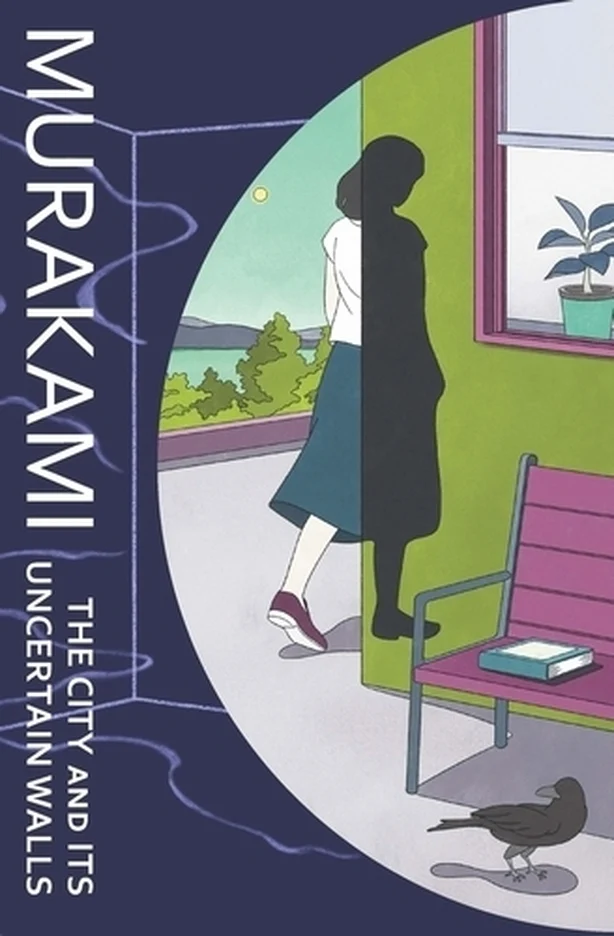Dec 24, 2024
Nov 20,2024
Analysis: As a new Murakami book is published, a look at the Japanese author's back pages
In bookstores across Ireland, the new Murakami novel, The City and Its Uncertain Walls, has finally arrived. It's Murakami's first novel since 2018’s Killing Commendatore, following the publication of essay collection Novelist as a Vocation in 2022 and short story collection First Person Singular in 2021.
The new novel – a 448-page mystery – is adorned with just the author's surname in bold, capital letters. This is true of most editions of Murakami found in Ireland and the UK, published by Vintage Books and Harvill Secker. Murakami is such a well-known writer that his surname is sufficient; it is all the information needed.

But who is Murakami? The easy answer is that Haruki Murakami is a Japanese novelist. More than that, Murakami is perhaps the most famous living Japanese novelist and among the most famous writers of 'literary fiction’ alive.
Born in 1949 in Kobe, Japan, he is best known for his novels Norwegian Wood (1987), Kafka on the Shore (2002), and The Wind-Up Bird Chronicle (1994). Murakami’s style is defined by repeated motifs, characters and imagery and has found him dedicated readers across the globe. The release of his novels often inspires midnight book launches with trivia quizzes and interactive activities.
His fiction has been adapted for the screen, the stage, and tops bestseller lists as well as best of the year lists. Memorably, Barack Obama said that short story collection Men Without Women was one of the best books of 2019 and listed the film adaptation of short story Drive My Car from that book among his favourite films of 2021.
BBC Radio 3 interview from 2000 with Murakami
Murakami is also well-known as a perennial favourite for the Nobel Prize for Literature. In 2012, Roland Kelts wrote that Murakami topped "everyone’s list" in predictions for the accolade that year and not much has changed In the 12 years since The Guardian had Murakami listed as the second favourite to win the 2024 award, which instead went to South Korean author Han Kang.
Murakami is however the recipient of countless international awards, such as the Tanizaki Prize (his native Japan), the Franz Kafka Prize (Czech Republic), and the Frank O'Connor International Short Story Award (Ireland). Most controversially, in early 2009 Murakami was awarded the Jerusalem Prize for his literary work. This award coincided with Israel’s Operation Cast Lead military campaign and involved airstrikes on Palestinian buildings, leaving thousands of Palestinians homeless, wounded, or dead.
Despite protest and unease at home in Japan, Murakami travelled to Israel in February 2009 to accept the prize. His acceptance speech was guarded, but betrayed an unease with the violence perpetrated by Israel towards Palestinians, claiming that "between a high, solid wall and an egg that breaks against it, I will always stand on the side of the egg".
We need your consent to load this Spotify contentWe use Spotify to manage extra content that can set cookies on your device and collect data about your activity. Please review their details and accept them to load the content.Manage Preferences
This evasive quotation is classic Murakami, who seems an at once a mysterious and direct man. His stance is clear, his acceptance speech carries an implicit criticism of Israeli tactics. But his refusal to voice the specific issue – his gesture to metaphor – is typical of his fiction too. His novels too, contain this quality: they are full of missing people, missing pets, and tantalising mysteries. His best novels often leave these mysteries unsolved or the people still missing.
Although Murakami’s novel Norwegian Wood remains his most popular and widely-discussed, it is something of an outlier among his fiction. Norwegian Wood is a tale of doomed love and depression, with little in the way of the magic or the supernatural that is found in his latest novel. His other works, such as the mammoth 1Q84 (2011) and intricate The Wind-Up Bird Chronicle, also deal with magical occurrences and tangled romances. Maybe the best place to begin with Murakami is through his short fiction: the collection Blind Willow, Sleeping Woman (2006) offers an excellent insight into the literary world and imagination of Murakami.
Trailer for Burning
It is perhaps no coincidence that the best film adaptations of Murakami draw from his short fiction (2018’s Burning, starring Steven Yeun and based on Murakami’s short story Barn Burning, is an excellent watch). The most notable of the film adaptations is Drive My Car (2021), directed by Ryusuke Hamaguchi. This film turns a short Murakami story into a three-hour meditation on grief, guilt, and violence, while also incorporating snippets of other Murakami short stories. The film was awarded the 2022 Oscar for Best International Feature Film.
Although The City and Its Uncertain Walls is sure to be a Christmas bestseller, it is not the only Murakami book to receive a release this winter. A new translation of Murakami’s 1985 novel (translated originally as Hard-Boiled Wonderland & the End of the World) is due for release in December, with the reordered title of End of the World & Hard-Boiled Wonderland. Between these two releases, Murakami superfans are spoilt this Christmas. For Murakami agnostics, there is perhaps no better time to journey into Murakami-land.